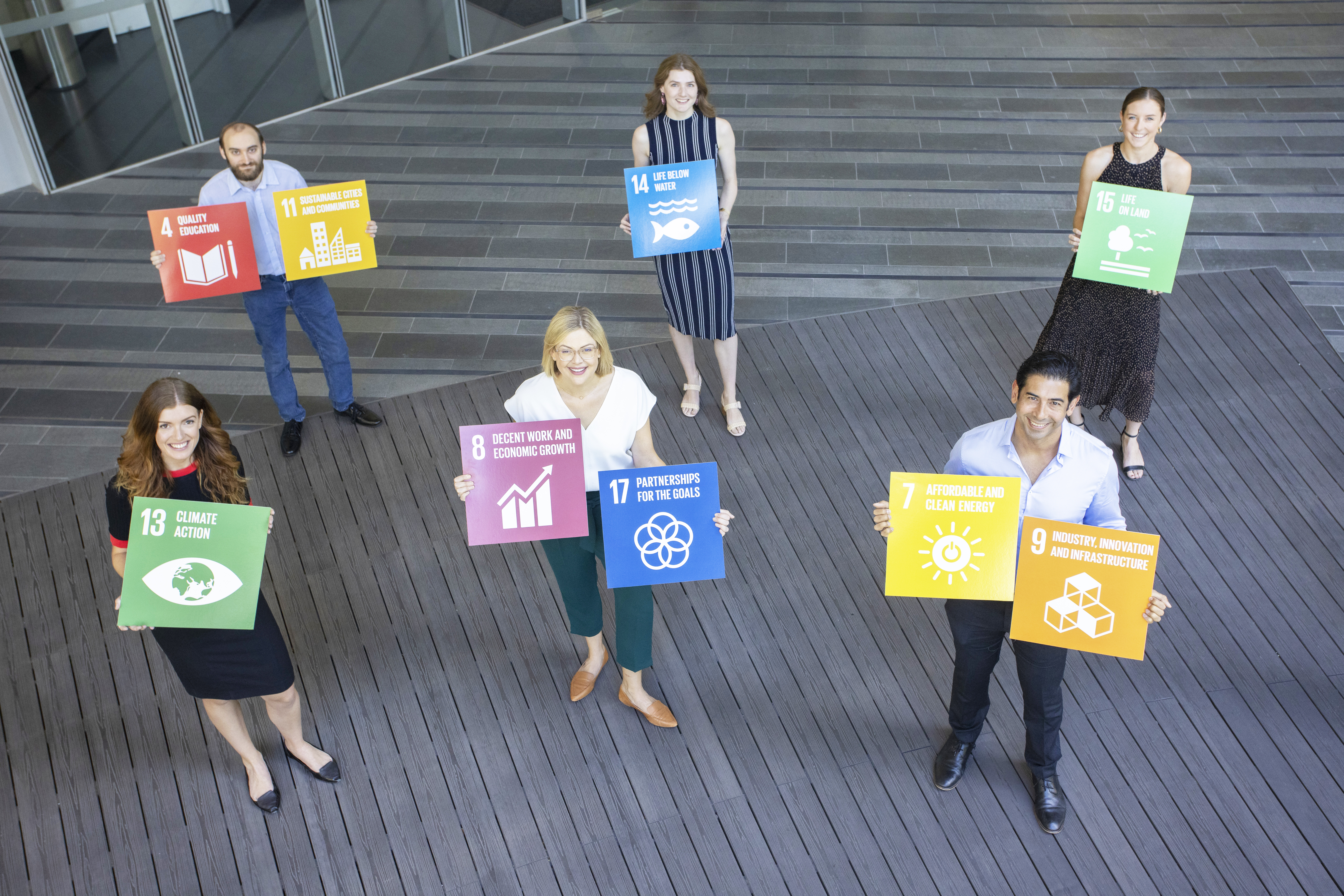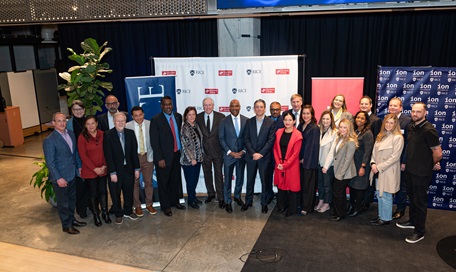Expanding focus
Woodside has broadened its approach to reporting its sustainability aims and performance.

Woodside has broadened its approach to reporting its sustainability aims and performance and how it aligns with the global sustainability agenda through United Nations Sustainable Development Goals (SDGs).
Each year, the company outlines its approach to sustainability across a range of key areas including climate change, health and safety and social and cultural impacts in the Sustainable Development Report.
“There was a great deal of work conducted across the business last year in sustainability and the 2020 Sustainable Development Report highlights include achieving our best-ever personal safety performance and meeting our energy efficiency targets,” says Laura Lunt, Corporate Affairs Manager Sustainability.
The 2020 Sustainability Report, which was released simultaneously with our 2020 Annual Report in February 2021, also outlined Woodside’s revised strategy to contribute to the SDGs.
The SDGs are set to tackle the planet’s most pressing environmental, economic and social challenges. Each SDG is measured by targets for governments and business.
There are 17 SDGs; for the past three years, Woodside has measured its progress against five SDGs.
No longer.
“Last year we finalised a review of this strategy to see if it still best represented our contribution and aligned with the underlying SDG targets,” Laura says.
That review concluded an expanded focus to include more SDGs would better reflect how Woodside contributes to the global sustainability agenda.
Woodside broadened its focus to nine of the 17 where we can make a positive impact.
“Furthermore,” Laura adds, “we have divided our SDGs into two tiers of primary and secondary goals. The first tier comprises three primary goals, the second tier contains five secondary goals.
“And they are all underpinned by SDG 17: Partnerships for the goals – the aspiration to work with our key stakeholders to enhance our contribution across the primary and secondary SDGs.”
While Woodside’s focus on SDG7: Affordable and clean energy is the basis of our company strategy to respond to the energy transition, our contribution to the global agenda extends more broadly.
The revised approach includes the addition of SDG 8: decent work and economic growth, reflecting our role as a responsible employer and the activities we are undertaking to build industry capability, SDG 4: quality education, which aligns with our efforts to improve early childhood education through the Woodside Development Fund and other education initiatives and SDG 11: sustainable cities and communities to acknowledge our efforts to preserve cultural heritage.
“We also added SDG 15: Life on Land, which aligns with the efforts of our carbon team to improve degraded habitats through our tree-planting programs,” Laura notes.
Ann Pickard, Woodside Board Director and Sustainability Committee Chair, says the broader suite of SDGs more clearly demonstrates where Woodside’s contribution is the greatest.
“The key deliverables for each have been identified and progress against these will be published in this report each year,” she states.
Laura reports that Woodside was recently rated by The Global ESG Monitor as the second top ASX-listed company for the quality of its Environmental, Social and Governance (ESG) reporting.
“There was a great deal of work conducted across the business last year in sustainability and the 2020 Sustainable Development Report highlights include achieving our best-ever personal safety performance and meeting our energy efficiency targets”



